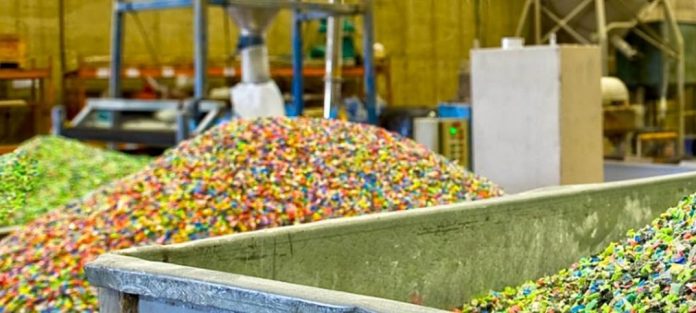BIR World Recycling Convention (online), 31 May – 2 June 2021, Plastics Committee:
In complete contrast to prevailing conditions during the previous BIR Convention last October, 2021 had brought “huge demand” for recycled materials and “very high prices” as well as difficulties in fulfilling supply obligations, observed the Plastics Committee’s Chairman Henk Alssema of Netherlands-based Vita Plastics in his opening comments to today’s online meeting.
Committee board member Sally Houghton of the Plastic Recycling Corporation of California enthused: “We’re in that wonderful situation now that we’ve only dreamt of: that there is such demand that, once you have value for a plastic, then you’re going to create more innovation, more people wanting to collect, more people seeing it as an untapped resource.”
However, she also insisted that the most beneficial conditions existed only in those market segments where mandated recycled content was providing demand pull. In contrast, companies selling flake into the packaging sector, for example, were battling liquidity issues in many cases and were “struggling to meet the bale prices”.
Ms Houghton also argued that there was “still a long way to go in terms of design for recyclability”, to which Mr Alssema added that laminated packaging and other such problematic material streams showed the need for continuing co-operation between recyclers and packaging producers.
A salient example of brand-owners’ growing commitment to recycled content in their products was provided by guest speaker Eelco Smit, Senior Director within the Group Sustainability team at Dutch-based multi-national Philips. His business had set itself the target of quadrupling its use of recycled plastic to 7600 tonnes by the year 2025; already, for example, 95 per cent post-consumer polypropylene content had been incorporated into vacuum cleaner housings and more than 75 per cent recycled plastics into the non-food-contact parts of an award-winning coffee-maker.
According to Mr Smit, large brands sought “security of supply” but most would prefer to leave recycling in the hands of existing experts rather than to build their own processing plants. Indeed, he saw brands that are “willing to invest in new technologies” as a “big opportunity” for recyclers to either “scale up or start up”.
Dr Steve Wong of Fukutomi Recycling Ltd, who is also Executive President of the China Sustainable Plastics Association, highlighted supply issues created by the Basel Convention plastic waste amendments introduced at the start of this year. “In the Far East especially, I don’t think there will be enough recycled material for recycled content purposes,” he observed.
In a further contraction of opportunities for exporters, Turkey was to ban imports of “waste, parings and scrap of ethylene” – generally consisting of LDPE and HDPE – with effect from July 3 this year. Turkey had become an important outlet for EU member states, with volumes soaring from 22,000 tonnes in 2016 to 447,000 tonnes in 2020.
Responding to the contention that Turkey’s decision would intensify the pressure within Europe to recycle plastics in the country of origin, Max Craipeau of China-based Greencore Resources Ltd expressed the belief that this could lead to a significant increase in flows – particularly of the lower grades – between Western Europe and processing plants in Eastern Europe.
Another factor for exporters had been what Mr Alssema described as the “terrible” conditions in the shipping market, characterized by “container shortages, high costs and unreliable services”. In response, global logistics expert Theo van Ravesteyn, Non-executive Chairman of MSC Nederland, explained that the container shipping industry had been “locked in a repeating boom-or-bust loop” for three decades, going on to express doubts as to whether major players would exercise the necessary discipline to break this cycle.
On one point, however, Mr Van Ravesteyn was certain: shipping rates might fall a little but there would be no return to the really low levels of previous decades. “Those days are over,” he insisted.
Source: Bureau of International Recycling (BIR)





